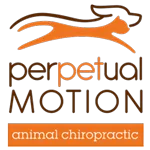
As the weather turns colder, our metabolism begins to slow ever so noticeably. This change is nature’s design to synchronize our systems with the world around us and conserve resources. Instead of pitting ourselves against the laws of nature, it's a much wiser course of action to do our best to align ourselves with what's happening in the surrounding world and embrace the change.1
But a little slowing does not mean we have to abandon our exercise activities completely! Modification, care, and attention are the keys to continuing exercise regimens regardless of the season. We might notice that we want to get up a little bit earlier (or later!) to either match the increased sunlight of the early morning or, variously, to wait until the day gets warmer before venturing forth.
Those of us doing strength training may also need to invoke some winter adaptations, paying particular attention to what our bodies are telling us. There's no room for egos in healthful exercise, and it may be appropriate to modify our routines by decreasing the weights we're lifting by 10 or 20 percent throughout the winter months.
Aside from attempting to heed and respect the somewhat amorphous concept of body rhythms, what we're also addressing in our winter activity modifications is the possibility of injury. Injuries are not only painful and annoying; they interfere substantially with our exercise progress. For example, if you strain your Achilles tendon or wrist ligament you'll likely be sidelined at least several weeks.2
The primary issue is that in winter things like muscles, tendons, and joints are sluggish as a result of being colder, and take much longer to get warm.3 Cold muscles and tendons are not as pliable, flexible, and resilient as we are used to in the spring, summer, and fall. If we don't take care when we're exercising, injuries are likely. By slowing down and reducing our exercise intensity, we implement the principles of winter: rest, recovery, and recuperation.
The winter weather also creates an environment that leaves us more susceptible to colds, influenza, and other upper respiratory viruses. The pharmaceutical industry is very glad of the opportunity to inform us via incessant advertising that "flu season" is upon us and we need to stock our "medicine cabinets" with all sorts of pills and potions.
The better option may be to take care of our health throughout the year by engaging in healthy lifestyle choices, including a consistently healthy, nutritious diet, regular vigorous exercise, and proper rest. By maintaining steady levels of good health, we help ourselves to withstand the various infections that may cross our paths during the colder months. Regular chiropractic care is an important and integral component of our health care planning. By detecting and correcting causes of nerve interference, regular chiropractic care helps us function at peak capacity and helps ensure optimal health and well-being in all seasons, including winter.
- Atenstaedt R, Rees M: Should we be gritting pavements to prevent pedestrian injuries? Perspect Public Health 133(3):149-150, 2013
- Arnold CM, et al: Falls and Wrist Fracture: Relationship to Women's Functional Status after Age 50. Can J Aging 35(3):361-371, 2016
- Wyon MA, et al: The influence of winter vitamin D supplementation on muscle function and injury occurrence in elite ballet dancers: a controlled study. J Sci Med Sport 17(1):8-12, 2014
